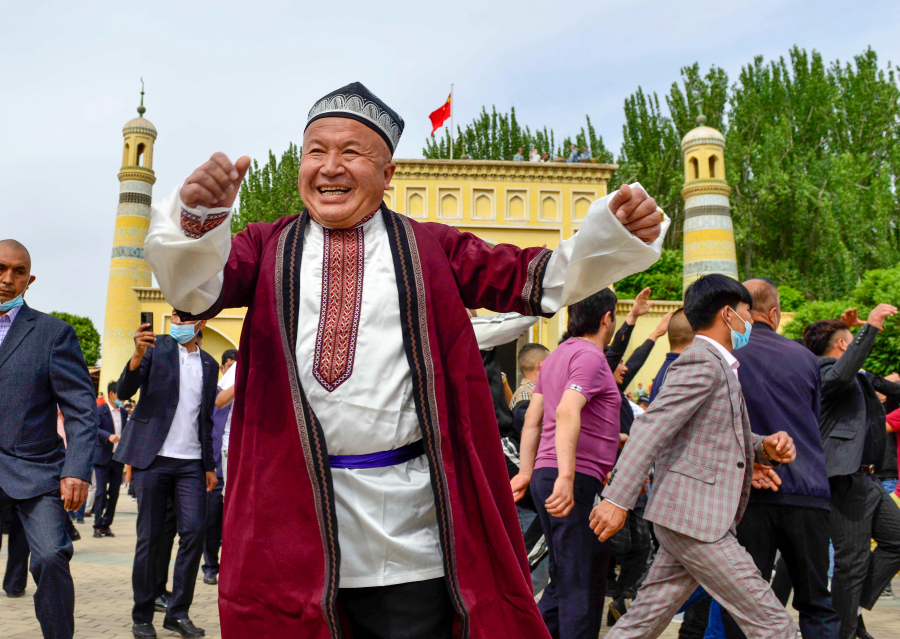I witnessed China's religious freedom
By Muhammad Nauman | chinadaily.com.cn | Updated: 2021-09-23 15:25

The idea of religious freedom has been used in both positive and negative ways by various regions, blocks and nations across the world, according to selective framing. Most of the time, the West believes and advocates that religious freedom is a neglected fundamental right in the East, including in China, an unflattering impression which has been cultivated for decades through framing in the media.
Such a stereotype of China, as being intolerant of religious freedom, had haunted me for a long time, until I witnessed something that challenged my beliefs.
On a sultry June morning, I received an urgent email that the Chinese ambassador would go to the Faisal Mosque as his first visit to any place in Pakistan that day. The news surprised me, since I grew up observing the global media speak of China's rigidity toward Islamic places of worship. As one of the officials for the International Islamic University tasked with receiving the diplomat, I met the delegation led by Nong Rong, ambassador of China. The delegation struck me as a delightful, cheerful and courteous group of professionals with smiling faces. The Chinese ambassador showed a keen interest in various parts of the mosque as he was briefed about it in detail. The ambassador also met the children of the Islamic center who were busy studying the Holy Quran. He addressed the children there, saying that every citizen of China has an immense love for Pakistan, and adding that the friendship is exemplary and historic. He said he felt great pleasure in visiting the grand mosque which was indeed a symbol of Pakistan. The ambassador stressed that we must transfer this love and friendship to the youth so that the exemplary bilateral ties and friendship may expand and become stronger in the future.
Dr. Muhammad Ilyas, director general of the Dawah Academy, which looks after the matters of the mosque including prayers and the Islamic center, said on the occasion that the visit of the Chinese ambassador and his meeting with the Hufaaz was a matter of pleasure. He said that Dawah Academy disseminates a message of Islam that reflects peace, harmony and peaceful coexistence. He expressed happiness that same gestures were shown by the ambassador and he supported the cause of the academy. He also mentioned about the Islamic books translated into Chinese, saying the publications of the Dawah Academy have been hailed across the world as the academy is focused on disseminating Islam’s message of peace, training to introduce the real essence of Islam, and promotion of Quranic teachings. He noted that more than 700 Chinese students are studying at the International Islamic University, which includes Dawah Academy. The visit concluded with a recitation of the verses from the Holy Quran by Dr. Muhammad Ilyas.
These experiences contradicted the messages I had heard for decades. I then realized that this idea of a China supposedly unsupportive of the Muslim cause was nothing more than negative propaganda.
So I dug further into the details of religious freedom in China, and discovered that China's Communist Party had enacted decadeslong reforms to safeguard religious freedom for all ethnic groups, counter to all the claims by the West.
Communication researchers have illuminated the increasingly popular phenomenon of the framing effect, which has prompted more students and scholars to do more impartial research into religious freedom in China and correlate the reported facts with the reality. Only through such due diligence will more people finally recognize the truth instead of blindly accepting the demonized narrative concocted by Western media.
Muhammad Nauman is a freelance columnist in Pakistan.
























